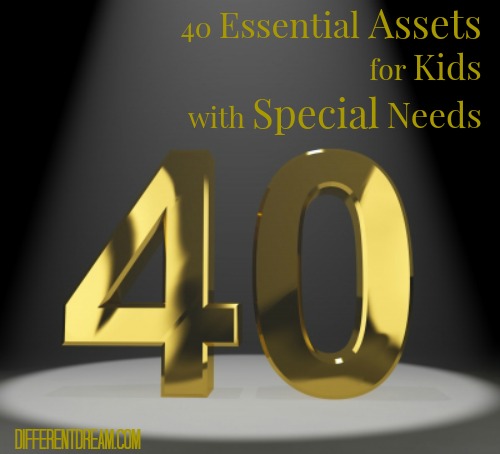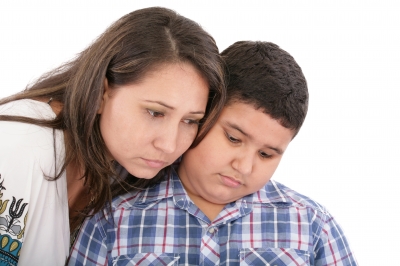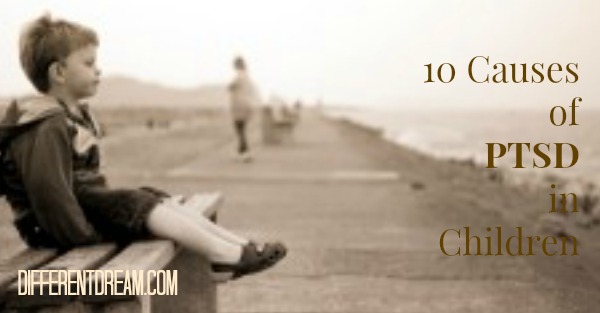4 Ways to Combat Special Needs Parenting Stress

Special needs parenting stress is a reality. This post from Laurie Wallin offers 4 ways to combat special needs parenting stress. See what you think.
4 Ways to Combat Special Needs Parenting Stress
I sat with jaw dropped and tears flowing down cheeks as I watched the documentary. A UCSF expert in cellular aging was explaining that special needs moms were one of the best groups in which to study the negative effects of chronic stress on the human body. Her colleague, a Stanford University researcher, confirmed this, adding that for every one year of chronological age, special needs moms experience on average six years of cellular aging.
As I stared at the documentary on the screen, the full gambit of grief pulsed through my body—denial, anger, depression, bargaining—everything but acceptance, that elusive stage of grief that I wish I could grab hold of more often in this parenting journey.
My husband simply reached over and held my hand when he realized our little movie night had been ambushed by reality. Of course, choosing National Geographic’s documentary, Stress: Portrait of a Killers was, in hindsight, a stupid choice for some quality hubby snuggle time. But I gravitate to topics like that because deep down I’ve always known this job of special needs parent is intense, and that the intensity has to be affecting me over time. How can constant, high-level, hyper-vigilant care of another human being NOT do that to us?
Friends, this is one of the hardest things we face as special needs parents: stress.
But there are some things we can do to fight special needs parenting stress. Things that protect us from this radical aging in our cells due to the intensity of our caregiving lives.
Forgiveness
Forgiveness is letting go. Not forgetting, but loosening our grip on what we feel has wronged us. We forgive so WE can be free of the negative emotions that come with hurt in life. The careless comments of other parents at the supermarket. The casual way a doctor or specialist disregards our input about our child. The school’s neglecting provisions in an IEP. The ways we feel left out in our extended families or communities. Whatever the hurt—whether intentional or accidental—when we let go and allow life to deal with that person or situation so we can move on, we combat stress’s negative effects on us.
Time to Recharge
Nobody can give care constantly, daily, yearly, for a lifetime… without a break. Even health care professionals work in shifts. However we are able, we’ve got to plan regular COMPLETE breaks. Times when we relax, be in charge of ourselves alone—with no wheelchairs, feeding tubes, medications to administer, environmental hazards to watch for. What would you do if you had a half hour to yourself? What would it take to give that gift to yourself?
Sleep
We can’t function without enough of it. So why do we try? Probably because we’re trying to get things done, to feel some sense of control in the world by controlling what our kitchen or house looks like. If you think you can manage on less that you know is healthy, then consider how often you misplace your keys, forget a commitment, or snap at your spouse.
Strong Support Network
At the end of the Stress documentary, both researchers shared hope for our stressed-out lot. There is a way that we can erase the damage. We do what you’re doing right now. We engage in community—whether online, in person, at church, in your neighborhood. By sharing what we’re going through, laughing, freaking out, crying, worrying, problem-solving, and living this together, we can actually get back years the stress has taken from us.
Connecting with and helping others can help us to mend ourselves, and maybe live longer, healthier lives.
Dr. Elizabeth Blackburn, UCSF
What will you do, today, to fight back against the stress in your life?
-Laurie
Do you like what you see at DifferentDream.com? You can receive more great content by subscribing to the quarterly Different Dream newsletter and signing up for the daily RSS feed delivered to your email inbox. You can sign up for the first in the pop-up box and the second at the bottom of this page.
By Laurie Wallin
Laurie is the mom of four daughters–two adopted with developmental delays, mood disorders, and ADHD. A former junior high teacher turned speaker and life coach, she loves to learn, laugh until their sides hurt, and help women be courageous in life.
7 Comments
Submit a Comment
Subscribe for Updates from Jolene
Related Posts
40 Developmental Assets for Your Child with Special Needs
40 developmental assets were researched by the Search Institute. How can they be modified and applied to the development of children with special needs?
Childhood Depression: What Are the Signs?
Childhood depression is a growing concern in our country. Recognizing symptoms in children at different ages can help parents find early, effective treatment.
10 Causes of PTSD in Children
Many causes of PTSD in children exist. This post looks at 10 very common ones parents need to be aware of.






Maybe that documentary needs to come with a warning label: parents of kids with special needs are not advised to watch this film!
Jolene
Nancy,
The guilt is completely understandable. But the “mistakes” you described are perfectly human. You’re probably much harder on yourself than anyone, including God, is.
Jolene
I agree with the guilt. Guilt every time I mess up and food leaks everywhere or I get the schedule wrong or hook things up wrong the few times I have to do it. I have nurses and a wonderful husband so I do not have to hands on, directly care for Lillian 24/7. However, I maintain a lot the other stuff that makes a house run, too. I feel horrible that I can not take care of my child without making a mistake every day!!! Just shows me how much I need to rely on Jesus. Every day.
Thanks for your encouraging words. Last night I watched that documentary and felt exactly like what you said.
You are absolutely right, Holly. We need to forgive ourselves and learn to combat guilt. That’s an issue I speak about a lot in workshops, and there are a couple chapters about it in Different Dream Parenting. It comes out in October, so hang on just a couple more months!
Jolene
I think we need to add “forgiving ourselves” to the idea of forgiveness. I suffer from guilt. Guilt caused because I am not doing enough. Guilt that as I work outside the home, the years are slipping through my fingers and my son’s brain elasticity diminishes. Guilt because…
I take a few minutes to myself and catch up on some blogs:-) Yes, unfortunately, stress resides in our home.